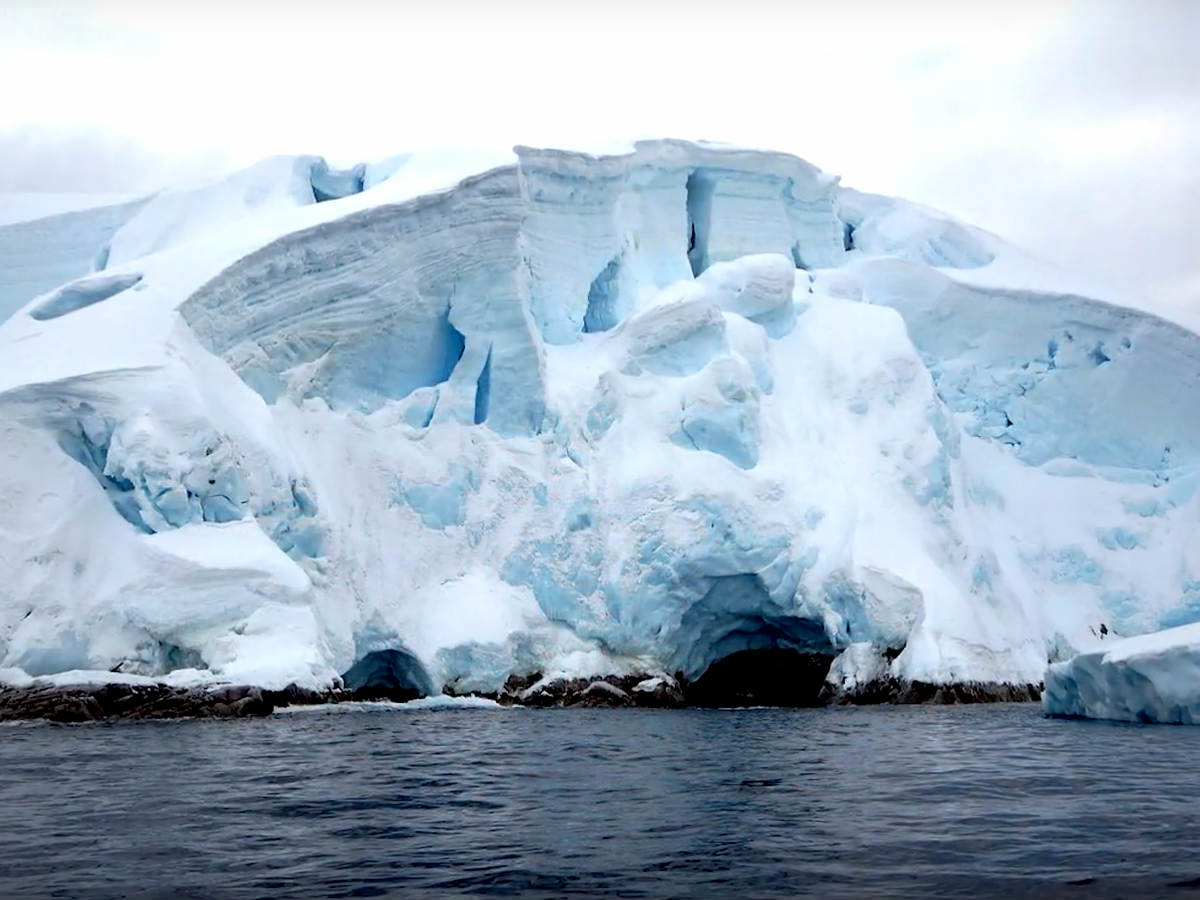
The impact of climate change on the Arctic Ocean, including its waters and ice, will be the focus of the Franco-Canadian roundtable FACT-O. Photo credit: Paul Myers
The world's oceans are vitally important to life on Earth. Playing a major role in the function of our climate system, oceans suffer the effects of climate change caused by human activities. Of particular concern are the effects of climate change in Polar Regions, including the Arctic Ocean.
Physical oceanographer Paul Myers, professor in the University of Alberta's Department of Earth and Atmospheric Sciences, has dedicated his career to understanding the impact of climate change on the Arctic Ocean. He will be sharing his expertise next week at a Franco-Canadian roundtable forum in Edmonton. Co-hosted by the Consulate of France in Vancouver and UAlberta North, The Arctic Ocean: from local to global concerns runs the evening of Monday, November 5 in the Edmonton Clinic Health Academy.
Global focus needed to address climate change issues
"Our concerns about oceans and climate are similar worldwide," said Myers of the joint effort and discussion between France and Canada. "Those with different backgrounds can provide diverse insight into a large and complex system, allowing for greater insight and understanding. Such interactions of researchers drive synergies and spark ideas, enhancing the research and long-term understanding of the relevant processes."
Myers' research focuses on high-latitude oceans-the Arctic and North Atlantic-and how these regions will evolve in the future. In particular, he is investigating enhanced freshwater export from the Arctic as warming affects deep water formation in the Labrador Sea and its ability to take oxygen and carbon dioxide in to the deep ocean. Thus, Myers' research also focuses on links between the ocean and the cryosphere-the frozen parts of Earth's water systems-and how each component may affect the other in a warming climate.
He emphasized the need for international collaboration to address these types of critical climate issues, the focus of which reflects the growing collaborative efforts in the global scientific community.
"The fact that the French government is willing to support events in North America on the ocean and its role in the climate system shows the importance of this topic, and how high level government support can lead towards the development of international scientific collaboration and research," said Myers. "This is extremely positive. Hopefully other governments will soon follow along similar lines."
The French Ameri-Can Climate Talks-Oceans (FACT-O) event takes place on Monday, November 5, from 4:30-8:30pm in Edmonton. To learn more or register, visit uab.ca/facto.